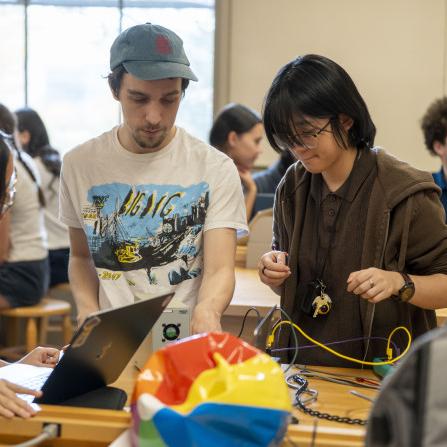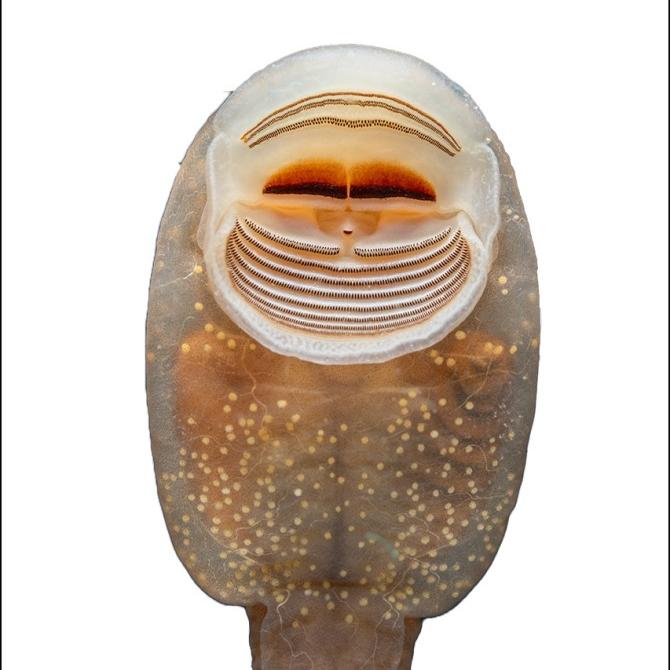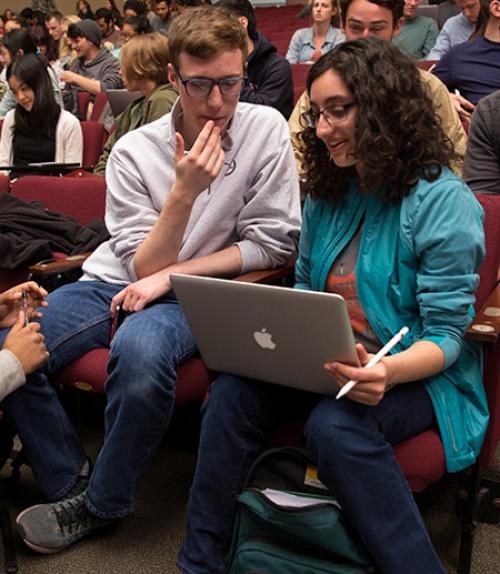The National Science Foundation has awarded a nearly $2 million collaborative research grant to principal investigators from Cornell, the University of Nebraska, Lincoln, and the University of Maine to assess the effectiveness of open educational resources in teaching core biology concepts, facilitating student-centered learning and supporting diversity, equity and inclusion.
Funding for the five-year project derived from the NSF’s Vision and Change Program.
A movement toward more effective undergraduate biology instruction was inspired by a 2011 report from the American Association for the Advancement of Science titled “Vision and Change in Undergraduate Biology Education: A Call to Action,” said co-principal investigator Michelle Smith, the Ann S. Bowers associate professor of ecology and evolutionary biology and senior associate dean of undergraduate education for the College of Arts & Sciences.
The report advocated for more student-centered learning, addressing issues of diversity, equity and inclusion, and for teaching that emphasized various core concepts, such as evolution and systems, and competencies including quantitative reasoning and interdisciplinary work. It called for more open educational resources, which has since resulted in an abundance of predominantly free and publicly available lesson plans, activities, labs, quizzes and other educational materials. Many of these materials feature active learning techniques.
“Materials like these are useful for instructors to help them save time and try new instructional approaches,” Smith said. “We will investigate how the materials are being used and when instructors modify them, we will measure how the changes affect student learning. Our research will uncover how well open educational resources are meeting the goals set out in the Vision and Change report.”
In collaboration with Kate Ghezzi-Kopel, lead librarian for Cornell University Library’s evidence synthesis service, the team will conduct a scoping review of articles containing open educational resources from various biology journals, including CourseSource, to determine how well they achieve the goals of the 2011 Vision and Change report. Part of their assessment will involve comparing these articles to ones that predate the report, which should illustrate how open educational resources for undergraduate biology have changed over time.
Researchers will then ask instructors who use CourseSource and similar resources about how they have modified the lessons and activities for their classes. They also will ask authors of open educational resources how they constructed lesson plans and ways their institutions reward them for sharing these resources to the community of undergraduate biology instructors. All participants will be asked how the principles from the Vision and Change report influence their actions.
Finally, the group will engage multiple instructors who are using selected open educational resources from CourseSource, observe how each one implements the materials and adapt them to their classes through recordings and course materials, and assess their students before and after the lessons.
The analysis, according to researchers, will demonstrate the different ways educators use open educational resources and the extent of which they align with the objectives outlined in the Vision and Change report. Researchers will also meet regularly with groups of instructors from diverse institutions.
The other principal investigators on the project are Brian Couch, associate professor of biological sciences at the University of Nebraska, Lincoln, which is the lead institution; and Erin Vinson, a researcher with the School of Biology and Ecology and the Maine Center for Research in STEM Education (RiSE Center) at the University of Maine.






